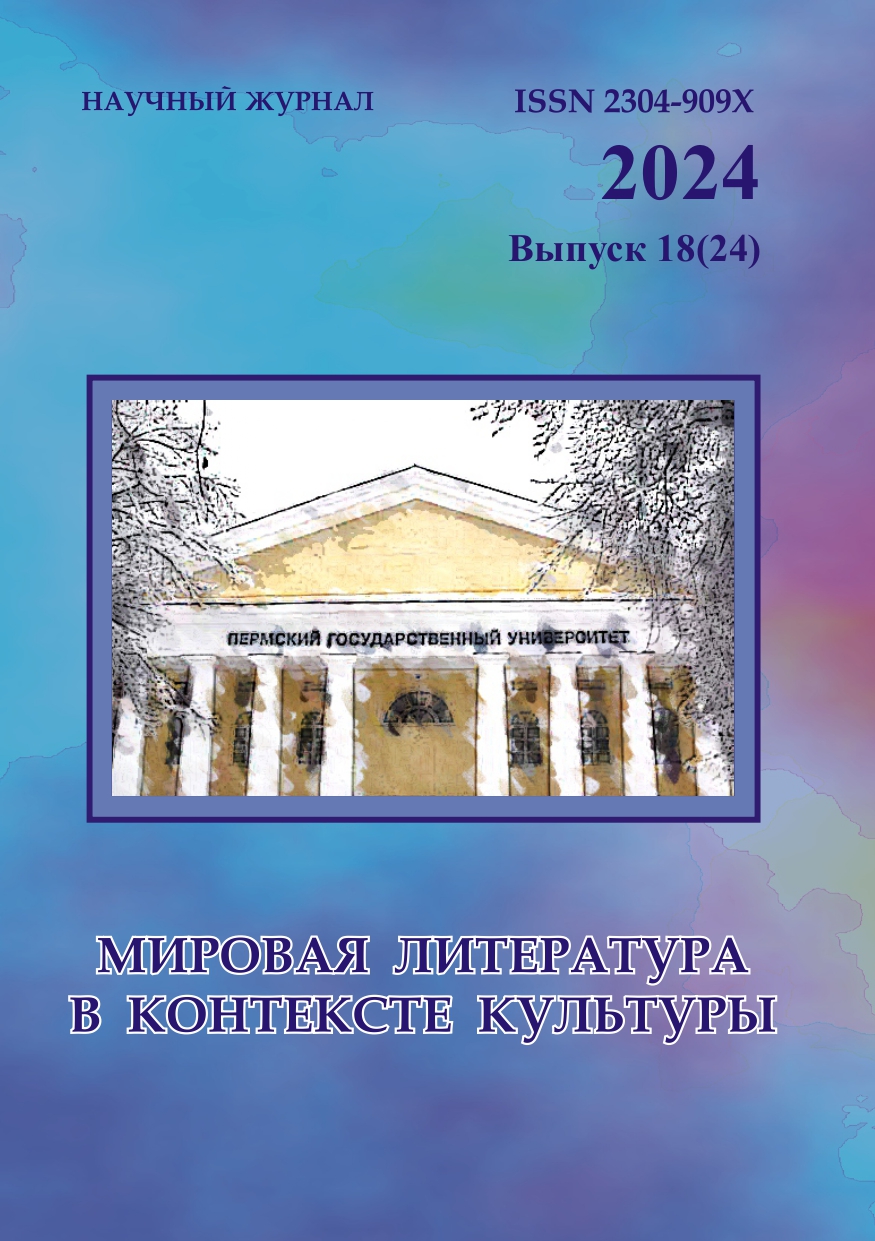Alogism in the European Theatre of the Absurd and Russian Drama of the 1930–1950s
DOI:
https://doi.org/10.17072/2304-909Х-2024-18-72-77Abstract
The article examines the role of alogism in the plot and compositional organization of the absurdist plays by Daniil Kharms “Elizaveta Bam” and Eugene Ionesco “The Bald Singer”. The formation of a new aesthetic paradigm, a different type of artistic thinking, determined the typological similarity of these works, the artistic picture of which is based on an existential crisis. Alogism, open-ended framework, the minus action technique are plot characteristics and compositional organization of Russian and European drama of the 1920s–1950s.Downloads
Published
2024-08-30
How to Cite
Trunilina М. И. (2024). Alogism in the European Theatre of the Absurd and Russian Drama of the 1930–1950s. World Literature in the Context of Culture, 18(24), 72–77. https://doi.org/10.17072/2304-909Х-2024-18-72-77
Issue
Section
Статьи

